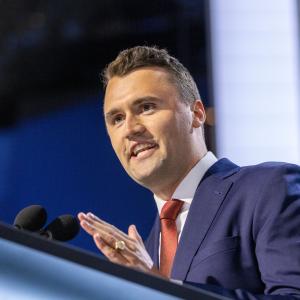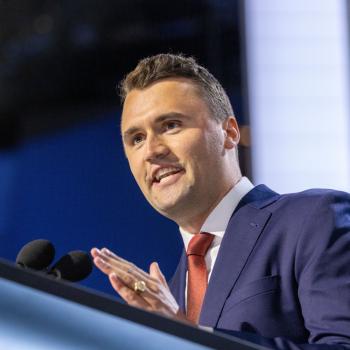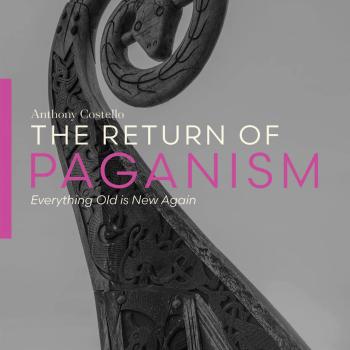In a recent post, Michael Clary, a pastor in Kentucky, made an incisive statement about the nature of Christian academics in light of the ministry and recent killing of Charlie Kirk. Clary’s claim highlights a seemingly new divide within Evangelical Christianity. However, as I will argue, it is actually an age-old battle within the Church, one that plays out between the pedanticism of an intellectual class and the propheticism of public reformers. First, Clary’s statement warrants a full reproduction here:
When I think about many of the Christian leaders I once looked up to, I wonder how many of them are feeling a lot of cognitive dissonance these days. In my seminary and early church planting days, I was taught a model of cultural engagement that emphasized non-offensiveness as a ministry non-negotiable.As I implemented this methodology in my ministry, I found it wholly inadequate for the challenges of real ministry. So I rejected that approach. It took me several years to fully deprogram my ministry instincts and retrain myself to be more bold and outspoken.Then I think of men like Charlie Kirk. He didn’t go to college or seminary. He didn’t build a platform by adopting the tactics of the credentialed experts. He built his platform with guts and grit.If Charlie Kirk had gone to a typical seminary, he likely would have lost his edge. He would have learned to be more careful. He would learned to be more measured. He would have had his prophetic voice educated right out of him. He may have ended up as just another celebrated academic, publishing white papers at ETS, and speaking on the lecture circuit.I’m not against those things. My point is that our institutions produce academics when the need of the hour is more prophets.We need men of courage and conviction these days, but the evangelical leadership that shaped the last generation of pastors trained men to bury their courage. How many men go to seminary and graduate more on fire for Christ?That’s why I think many older Christian leaders are feeling cognitive dissonance these days. The man who arguably had the greatest gospel impact in a generation did not go through their credentialing process, and did the opposite of what they would have trained him to do.How do you make sense of that?And then, I’m disturbed by this thought: how many young men have had their wings clipped by the credentialed class who told them “you can’t offend people if you want to be effective in ministry”?How many men sought training for ministry only to have the leaders they respected train the zeal right out of them?Kirk’s death has awakened the consciences of a generation of young men. They admire his courage, boldness, clarity and zeal. In the aftermath of Kirk’s death, many of these young men are looking for leaders who can sharpen them and direct their zeal.Who do they have to look to?Kirk’s bold voice, testimony to the gospel, massive appeal, and effective platform are a rebuke to the credential class who would have advised him to tone it down so he could play the long game and have a nice career.Don’t get me wrong, there’s still some very courageous voices out there, but many of them are speaking from outside the system, because their bold voice is a threat to the status quo.Going forward, the status quo is not gonna cut it. Everyone senses it. The way forward is more voices in the mold of Charlie Kirk, but the bench is pretty thin of men who can train the next generation of Charlie Kirks.So I find it ironic that God used Charlie Kirk, who did the opposite of everything Christian leaders are taught to do, and ended up building a ministry platform that produced the largest single gospel preaching event in human history.
“God chose what is foolish in the world to shame the wise.” 1 Cor 1:27Michael Clary, FB Post October from 10/2/2025

Erasmus and Luther: The Half-Hearted Humanist vs. The Fiery Friar
In his massive tome of Church history, Christianity: The First Three Thousand Years, Diarmaid MacCulloch justly spends many pages on two of the most compelling figures in the history of the Church: the humanist theologian, Desiderius Erasmus, and the arch-reformer himself, Martin Luther. Personality-wise it seems that there could not have been two more different biblicists than Erasmus and Luther, even though, academically-speaking, both were rather equally well educated (and this is where my analogy breaks down, a bit).
Erasmus, the older of the two (1466-1536), was in his time a kind of intellectual darling among European royalty, constantly demanded by various churchmen and princes to be a visitor at their courts and palaces:
All Europe wanted Erasmus as its property: Cardinal Ximenes made vain overtures to get him to Spain, and the cultivated humanist Bishop of Cracow Pietr Tomicki had just as little success with his invitation to Poland. Erasmus would never travel very far…instead, people came to Erasmus as devotees. He constructed a salon of the imagination, embracing the entire continent in a constant flow of letters to hundreds of correspondents, some of whom he never met face to face.
MacCulloch, Christianity, 594.
MacCulloch goes on to call Erasmus “the patron saint of networkers” as well as “of freelance writers.” And, in a sense, Erasmus really was the pre-Renaissance renaissance man: intellectual, well-read, witty, and well-connected.
In addition to his erudition and personal appeal, however, Erasmus was one who was nevertheless not on board with the status quo in the Church: both in the Church’s practices and her teachings. He was, in a very real sense, an ecclesial and theological reformer. His detailed work on the texts of the New Testament, on the Greek manuscripts and new translations of them, provided the basis for Erasmus’ skepticism about certain Church doctrines and supplied him with evidence for the development of said doctrines over time. His intimate knowledge of and working with the original Greek, in contrast to others’ uncritical reception of Jerome’s Vulgate (whom he nevertheless greatly admired), supplied Erasmus with biblical proof against certain dogmas of the Roman Church, dogmas that Luther and others would also eventually reject or, at least, demand not be dogmatically enforced. As such, intellectually-speaking, Erasmus was very much in the “ad fontes” camp when it came to the central question of the Reformation, namely: what is the ultimate source of authority for the Christian religion?
Nevertheless, in spite of Erasmus’ reformational spirit, his intellectual conviction for doctrinal reform, his affinity for the common man, and contempt for “the excesses of clerical privilege, particularly the clergy’s pretensions to special knowledge,” (599), still his personality seems to have failed him where it mattered most: in the actual, concrete push for reform. According to MacCulloch, Erasmus, who was prepared in every way to do the work of reform, after only one debate with Luther, “signalled that he would not abandon the old Church.” Yet this was against his deeper convictions that the Church did need to be gone against. Still, “he desperately tried to avoid decisively taking sides in the storm” that was tearing Europe apart (603). Erasmus’ fear of losing his “high-minded reform projects,” and his “charming Latin-speaking friends” eventually kept him out of the fray that his friarly counterpart, Luther, was more than willing to engage in.
Thus, in spite of his many years of tongue-in-cheek commentary (In Praise of Folly), and highly sophisticated, literary critique of the Roman Church–her teachings and her clergy–when push came to shove Erasmus wound up contending against Luther instead of the Vatican. Why? Not because Erasmus found Luther wrong on the theological issues, but, as MacCulloch points out, because of Luther’s approach to those issues, “His attack was as much on Luther’s way of doing theology as on the resulting theology: Luther was exposing controversial questions to public excitement when there was no need to do so” (MacCulloch, 613). In other words, Luther was a man of the public, while Erasmus was a man of the princes. Luther was a man on the scene, while Erasmus preferred being behind the scenes.
MacCulloch contrasts the pedant Erasmus with the prophet, Luther, saying:
Erasmus was a humanist pleading for people to be reasonable–and also saying bluntly that unreasonable people should not be brought into technical discussions of theology….Luther by contrast was a prophet proclaiming an inescapable message to fallen humanity….Luther set out a pitiless message that human beings could expect nothing but condemnation, and had nothing to offer God to merit salvation.
MacCulloch, 614
For Erasmus the issue of Christian salvation–of Christian truth— was more of an intellectual exercise. It was not not important, but it didn’t burn in his soul the way it did in Luther’s. Luther’s religious convictions, like the prophets of old, forced him to speak out and speak up, often in quite unsavory tones and less subtle language. No wonder it was Luther who was declared a criminal by the Emperor (Charles V), had a bounty put on his head, and had to survive assassination attempts.
That no one bothered to threaten Erasmus with similar actions, in spite of his affinity with Luther’s theological views, is noteworthy. Eventually, those who followed Luther and Erasmus’ lives came to see Erasmus as a “time-serving coward who lacked courage to take sides” (603). While Luther’s later writings, especially his screed against the Jews, seemed to go off the theological rails, one thing no contemporary churchman or later historian has ever claimed was that Luther was cowardly. As such, it is Martin Luther, wart(burgs) and all, who is remembered as the father of the Reformation, and not Erasmus.
Of Prophets and Pedants: The Offensive Gospel and Its Proclaimers
Clary, like many others in lieu of Charlie Kirk’s assassination, is pointing out a growing divide among Evangelical Christians. It is a divide, nevertheless, that is not new. There have always been those in the Church who, knowing the right thing to do have then gone out and done it: boldly, forcefully, without feeling guilty before the world. Alternatively, there are those who have known the right thing to do–known the truth–yet failed to go about getting it done in any significant way. Instead believing the truth but reserving it more for themselves or those who already agree with them.
We might call the former “prophets,” albeit not in the technical or canonical sense, and the latter pedants. The first are not prophets in the sense of office, of course, but only in the sense of having a prophetic spirit. It is a spirit that compels them to speak openly, clearly, and forcefully to the culture around them. They are less concerned about others taking offense than their more nuanced and careful counterparts. That said, the prophets of the Old Testament were often reluctant to speak, realizing the kind of cultural condemnation and public vitriol that doing so would generate. Yet they spoke regardless. Moreover, they often did wind up coming under the condemnation of culture, reaping hatred for the truth they sowed.
The pedant, on the other hand, believes it more important to be “rational,” and act “reasonably” within the culture–even within a very wicked or corrupt one. The goal is often to mitigate the offensiveness of the Gospel by making oneself as inoffensive as possible. As Clary alludes to, this can almost make it seem like the pedantic professor of the Gospel is not just engaged in an apologetic (a defense) of the faith, but is indeed apologizing for it. In Clary’s view, what is needed today is not more pedants, but prophets.
According to Clary, and I concur, the Church does not need more Christians acting overly inoffensive, nor being more concerned with inoffensiveness than with truth, nor fixated on academic nuance and intellectual “reasonableness” than on bold, straightforward Gospel proclamation. Clary goes on to suggest that Charlie Kirk’s success was even an example of God using what is foolish to shame the wise (cf. 1 Cor 1:27). Most of us would agree, I believe. For myself, I imagine if I were to meet St. Paul in person, he would be much more a Charlie Kirk, or Martin Luther, type than that of a Desiderius Erasmus or, well, you fill in the blank. Indeed for some Christians today who worry so much about inoffensiveness or about using soft tones and gentle voices, one wonders if Jesus himself would pass their muster?
No Ideal Types: Exceptions to Every Rule
There are, however, no ideal types: no perfect exemplars of Prophet or Pedant. These are generalization and, as such, caricatures. Life, to include Christian life, is far more complex than this. However, this does not mean that these categories tell us nothing about reality; they point to something that is there. Nevertheless, there are obvious exceptions to this dynamic. Clary especially seems to be honing in on academic-oriented Christians who lack the “guts and grit” of a Charlie Kirk: seminary professors, ETS members, PhDs. But Clary himself is one of those types. He has the same credentials as many of the folks he has in mind for criticism. Thus, Clary himself breaks the mold of the pedantic type laid out above.
Moreover, I have known other Christian intellectuals, who have not fallen into the sin of cowardice (cf. Rev 21:8) that rightly concerns Clary. Scholars like William Lane Craig, Richard Swinburne and Stephen C. Meyer quickly come to mind: men who over the years have bravely ventured into hostile cultural territory and publicly argued with intellectual vigor against Christianity’s cultured despisers. Or, even more recently, James Tour. And, it should be said, they have done so with graciousness and respect for their interlocutors (just as Charlie Kirk did). Nevertheless, these men have also received their fair share of ridicule from the culture they’ve challenged.
One of my own personal heroes in this regard, a man known to the Christian academic community as both a top-rank philosophical mind and someone who has never shied away from speaking that mind, is the great J.P. Moreland. I will recount just one instance here of where Moreland, embodying the best of the pedant and the prophet, boldly challenged the entire ETS/EPS community that Clary refers to in his post.
At the annual ETS/EPS conference in 2019 in San Diego, it was Moreland who, while giving the keynote EPS address at the conference dinner, a dinner attended by hundreds of the top Christian academics in the country, if not the world, said, without nuance or concern for being offensive, “It is impossible to be an Evangelical Christian and a Democrat today.” Moreland actually said much more than just that about the Democratic Party at the outset of his talk. Unfortunately, I cannot find a transcript of the speech to show precisely what he said.
However, my memory has not failed me and, I would say, that I am even watering down what was actually said. If anyone wants to challenge this, they can contact me directly, or reach out to Moreland himself. Indeed, there was many an eye rolled and eyebrow raised at the beginning of that keynote. I also distinctly recall one younger philosopher telling me afterward that “Moreland is a loose cannon.” My response was simple: “so what, he’s an awesome loose cannon!”
But that’s just me.
Conclusion: Many Members, One Body
Ultimately, the prophetic and the pedantic need not be mutually exclusive roles for Christians to play. I just related how men like William Lane Craig, Stephen C. Meyer and J.P. Moreland have been both academically rigorous and intellectually careful, yet without compromising on conviction or courage vis-a-vis culture. In addition, Charlie Kirk was no dummy. In spite of his lack of schooling, “professional” credentialing or of coming from inside “the guild,” he was not careless in his thinking or sloppy in his research. Moreover, there are many academically-inclined Christians who simply are not oriented toward debate or direct confrontation, but who God has gifted in other ways. They are more geared to applying slow and steady pressure against the tide of culture over time.
Ideally this is a case of many members of the same body working together for a common goal, albeit in different modes (Rom 12:3-8; 1 Cor 12:1-11). Academic research, intellectual development and institutional transformation takes time. It takes a kind of effort that usually takes place behind the scenes, often in one’s room, surrounded by stacks of books and papers. Those called to this kind of effort may never become known to us at the popular level, but their work can be invaluable to those engaging more directly with the culture. At the same time, the direct engagers, the confronters, should not be held in contempt by those in the academy, which is clearly happening with Kirk.
Ideally, the Church needs both working together: the Erasmus’s of the world carefully sifting through manuscripts and making needed textual corrections and careful theological articulations, and the Luther’s of the world proclaiming to the culture the dreadful significance and awesome gravity of those corrections and articulations.
It is only the compromisers that we don’t need. Those who know the truth but, when called upon, fail to speak it clearly and with conviction. As to these, concerned more about not giving offense than in offering truth, the book of Revelation does have something to say:
But the cowardly, the unbelieving, the vile, the murderers, the sexually immoral, those who practice magic arts, the idolaters and all liars—they will be consigned to the fiery lake of burning sulfur. This is the second death.”
Rev 21:8












